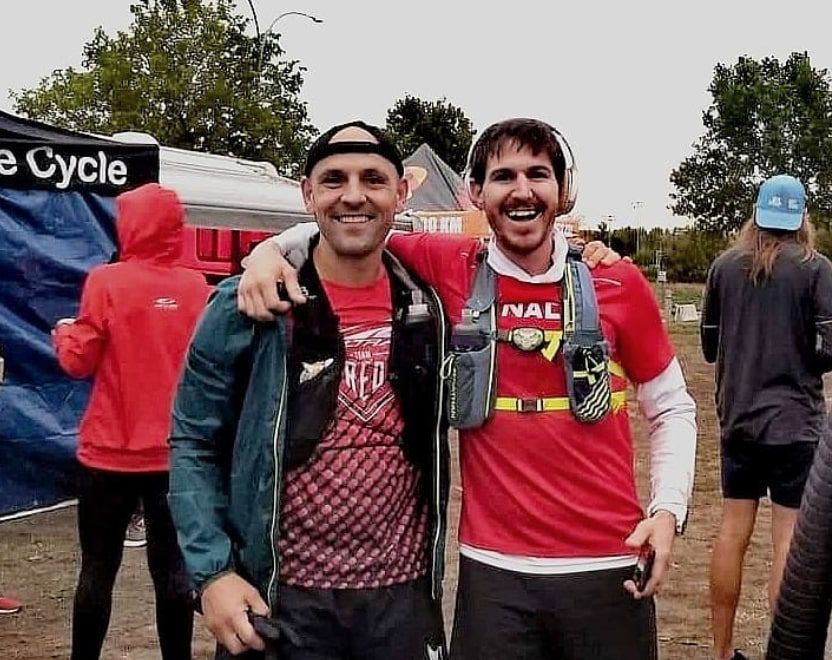Team Canada’s Matt Shepard on Big’s Backyard Ultra 2020
Get to know Matt Shepard, one of the top Canadians at Big's Backyard Ultra
 Photo by:
Instagram/go_shep
Photo by:
Instagram/go_shep
Matt Shepard wasn’t a very competitive guy when he first started running. Instead of racing, Shepard preferred running on his own around his then-home of Sitka Island in Alaska. It wasn’t until he moved to Alberta and the 125K Canadian Death Race caught his eye that he really got into the world of ultramarathons. He had run ultra-distances before, so decided to give the race a shot in 2017, and although he ended up dropping out of the race after about 115K, he was hooked. Three years later, he’s a top ultrarunner in the country, and he recently represented Canada at Big’s Backyard Ultra, where he ran 281K and finished as the second Canadian. While the run at Big’s is one of Shepard’s best results to date, he’s only just getting started.
https://www.instagram.com/p/CGTZIHhnXac/?utm_source=ig_web_copy_link
Shepard lives and trains in Valleyview, Alta. In addition to his own training, he works as a coach with Personal Peak, the endurance coaching service that worked alongside Gather Virtual to organizer the inaugural Quarantine Backyard Ultra (QBU) in April. After his DNF at the Canadian Death Race in 2017, he wanted to give it another shot. In training for the 2018 event, though, he injured himself and had to skip the race. That was when he joined the team at Personal Peak, first as an athlete before becoming a coach. Now, he has run multiple ultras, and he has big results from the 2019 Outrun Backyard Ultra in Alberta (which he won) and Across the Years six-day race in Arizona (where he finished second). His win at the Outrun Ultra won him a spot at the 2019 edition of Big’s Backyard Ultra, and Shepard says it was “a dream come true” to run at a Laz Lake event.
RELATED: Karel Sabbe runs 500K to win Big’s Backyard Ultra, Dauwalter takes U.S. crown
This year, despite the fractured race schedule due to COVID-19, Shepard managed to get a few big runs under his belt, including the QBU, in which he ran 41 laps for a total distance of 274K. “That one was fun, because we ended up running inside a coffee shop,” he says. It was -30 C in Alberta during the race, and after running outside for 16 hours, he was ready to call it quits when the night hit and the temperature dropped even lower. “When I got back to the coffee shop we’d been using as our base, the crew had pushed all the tables and chairs into the middle and made me a 27-metre loop around the shop.” He ended up running another 25 hours before pulling out.
https://www.instagram.com/p/CEZul2CnC9U/?utm_source=ig_web_copy_link
He’s still quite new to ultramarathons, but Shepard says the “backyard is hands down my favourite format. I love how it just levels the playing field.” With multiple successes in previous backyard races and a love for the format, Shepard was a perfect candidate for the Canadian Big’s team. Normally, Big’s is run in Bell Buckle, Tenn., but with travel restrictions around the world, Lake decided to make it a team event this year. Twenty-one countries participated, with 15 runners on each team. Teams ran until there was one runner remaining, at which point that lone athlete was crowned the national champion. With a strong Canadian team, Shepard was pushed by many athletes, and he and Montreal’s Stephanie Simpson ended up as the final two runners. Shepard bowed out after 42 laps and 281K, and Simpson took the win with one extra lap and a total distance of 288K.
RELATED: Training for the mental side of ultramarathons
Shepard says the team aspect made the racing much more enjoyable than usual. “When you have a common goal, it really helps quiet those negative thoughts in your head,” he says. “It goes from ‘Me versus the race’ to ‘Me helping these people.’ We were all working together.” Going into Big’s, Shepard says he was confident the team would have a great race, and he was absolutely right. Canada finished in third place as a team with 492 laps completed. The U.S. finished in second with 517 laps and Belgium won with 574.
Shepard says the race started well, but “then the rain started.” Just above freezing temperatures, the team was wet and cold for much of the race, but it wasn’t all bad. Shepard says he and his teammates took the 10 minutes or so after every 6.7K lap to change into dry shoes and other gear. “I was able to leave this race without a single blister,” he says with a hint of surprise. “I had 10 minutes every hour to tend to my feet. They were getting more care than they do on a normal day.”
https://www.instagram.com/p/B7EJQ77lI2U/?utm_source=ig_web_copy_link
In the end, Shepard ran farther than he has in any previous backyard ultra, and he says he was thrilled with the result. Before the race, he didn’t want to set a goal for himself. Instead, he just hoped to “stick it out on the hunt until the very end.” As the second-place Canadian, he did a great job of accomplishing that, and he looks to have a promising future in this type of racing.
RELATED: Your next challenge: hop into a backyard ultramarathon
Shepard isn’t sure when his next race will be, but he’ll be heading back to the U.S. for the winter to “find some warmer weather.” He says he hopes to find a few races to do south of the border, and if he can get into a backyard event, he’ll race for another entry into Big’s for 2021. Wherever he ends up racing, the rest of the field better watch out, because as Shepard has proven time after time, he is a force to be reckoned with in the backyard ultra scene.


